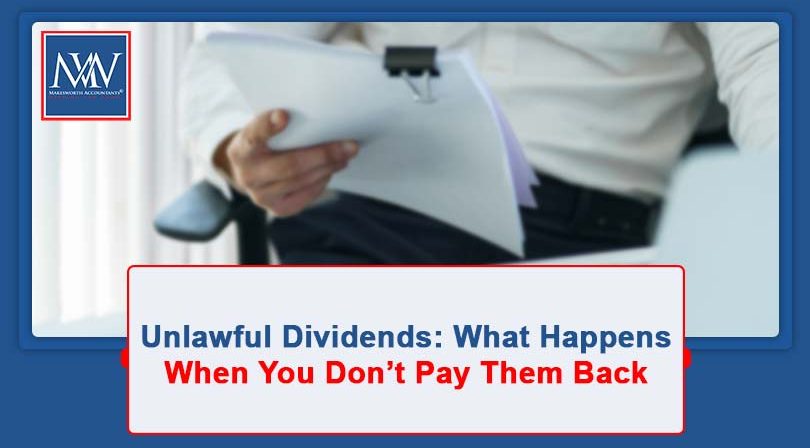
Unlawful Dividends: What Happens When You Don’t Pay Them Back
When a company declares a dividend, it must ensure that it has enough retained profits to support that payment. Even if there’s money in the bank, it doesn’t automatically mean the company can legally distribute a dividend. According to the Companies Act 2006, dividends can only be paid out of accumulated realised profits—that is, profits left after subtracting any accumulated realised losses.
When Is a Dividend Considered Unlawful?
A dividend is classified as unlawful (or illegal) if it’s paid out when there are not enough distributable profits available at the time. For example:
- A company may make a loss in the current year but still pay a dividend if past retained profits cover it.
- However, if current profits are wiped out by past accumulated losses, no dividend should be issued—even if there’s a profit this year.
In essence, if a company pays a dividend without having the legal profits to support it, it may be viewed as trading insolvently, which breaches company law.
Tax Implications for the Company
If a dividend is declared without sufficient profits:
- The dividend becomes void.
- The shareholder is considered not to have legally received it.
- If the shareholder knew or should have known it was unlawful, they may be required to repay the amount to the company.
Loans to Participators
When a director or employee receives an illegal dividend and does not repay it, it is treated as a loan under HMRC’s ‘loans to participators’ rules.
- If not repaid within 9 months and 1 day after the company’s year-end, the company faces a tax charge.
- This tax charge is 33.75% (matching the higher dividend tax rate) on the gross amount.
- Even if the company is loss-making, this tax is still due—but will be refunded if the loan is eventually repaid.
Tax Consequences for Directors and Shareholders
There are a few exemptions under the ‘loans to participators’ rules:
- If the amount is under £15,000, and the shareholder is a full-time working director with less than 5% shareholding, the rules don’t apply.
However, if a director receives more than £10,000, the payment is treated as an employment-related loan, which has other tax implications:
- A benefit in kind arises, calculated using a notional interest rate (currently 3.75% per year).
- The company must report this on a P11D form.
- The company will also owe Class 1A National Insurance Contributions on the benefit.
If the company formally writes off or releases the loan, it is considered as being repaid, but only for tax purposes. If the company’s reserves are negative, directors are expected to take steps to recover the funds from shareholders.
What Happens in Liquidation?
Things get more serious if the company enters liquidation or administration. In such cases:
- Directors can be held personally liable for any unlawful dividend paid, as this may be a breach of fiduciary duty.
- Liquidators and administrators often review the company’s activity going back three years before insolvency.
- If unlawful dividends are found, they can demand repayment from directors or shareholders.
- There is a six-year window to recover unlawful distributions, starting from the declaration or payment date—whichever is later.
Practical Note for Business Owners
HMRC keeps a close eye on this. If they notice dividends issued during periods when your company has negative reserves, they may raise red flags. This is especially easy for HMRC to spot, thanks to iXBRL-tagged financial data submitted with corporate tax returns.
Final Thoughts
Declaring dividends responsibly isn’t just about profitability—it’s about ensuring your company has legal permission to do so. Ignoring these rules can result in:
- Personal repayment obligations,
- Significant tax charges,
- And even scrutiny during insolvency proceedings.
If you’re unsure whether a dividend is lawful, it’s best to consult your accountant or legal advisor before making the payment.
For more information, Book a Free Consultation
Need Accountancy Support?
For information on bespoke training, or if you have any other questions for Makesworth Accountant, please fill in your details below
















 151
151